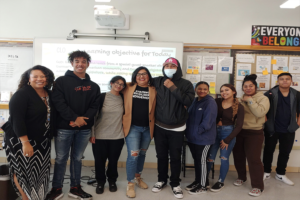By Stacy M. Brown
Black Press USA Senior National Correspondent
When Serena Williams told NBC’s “TODAY” show, “I just couldn’t get my weight to where I needed to be at a healthy place and believe me, I don’t take shortcuts. I do everything but shortcuts,” she added her voice to the growing list of public figures discussing the use of GLP-1 medications such as Ozempic, Wegovy, and Mounjaro.
Williams said she has lost 31 pounds since beginning the medication in 2023 and launched a campaign with telehealth company Ro to reduce stigma around the drugs. Across the United States, the demand for these drugs has surged. A 2024 Gallup survey found that 6% of U.S. adults—about 15.5 million people—report having used injectable diabetes medicines for weight loss, including 3% currently using them. FAIR Health estimates that more than 2% of U.S. adults specifically used GLP-1s for weight loss in 2024. The Kaiser Family Foundation (KFF) reported that one in eight U.S. adults (12%) has ever taken a GLP-1 drug, with 6% currently using one. Use is higher among those with health issues: 43% of adults with diabetes, 26% with heart disease, and 22% who were told they were overweight or obese in the past five years. Black adults (18%) are more likely than white adults (10%) to have used these medications.
Effectiveness is widely reported. Nearly two-thirds (64%) of Americans who have taken weight loss injections told Gallup they were “effective” or “extremely effective.” Current users were more positive than past users, with 73% of current users reporting effectiveness compared to 53% of past users. Still, cost remains a major barrier. According to KFF, more than half (54%) of adults who have taken GLP-1s said affording them was difficult, including 22% who said it was “very difficult.” List prices range from $936 to $1,349 per month before insurance. The Obesity Medicine Association notes that weight loss medications are typically prescribed for adults with a body mass index (BMI) of 30 or greater, or 27 with weight-related conditions. Weight loss from anti-obesity medications averages between 5% and 21%, though results vary, and most people regain weight if they stop treatment. Long-term therapy is generally recommended.
Pew Research Center found that obesity now affects 42% of U.S. adults, up sharply over the past three decades. About two-thirds of Americans (65%) told Pew that willpower alone usually isn’t enough for people trying to lose weight and keep it off. The rising demand is seen in sales. Semaglutide-based medications such as Ozempic, Rybelsus, and Wegovy generated $21.1 billion for Novo Nordisk in 2023, with 71% of revenues coming from the U.S. Eli Lilly’s tirzepatide drug, Mounjaro, brought in nearly $5.2 billion in its first full year on the market. Meanwhile, Williams said her decision to use GLP-1s came after years of struggling. “I had a lot of issues with my knees, especially after I had my kid. That, quite frankly, definitely had an effect on maybe some wins that I could have had in my career,” she said. “I just feel normal again,” Williams said. “It feels really good.”







